- 02 9712 1736
- [email protected]
- 212 Great North Road, Five Dock, NSW 2046
- Open 6 days from 7am
Inflammation is a crucial part of your body’s immune response to infection or injury. It is your body’s way of protecting itself from harmful stimuli, such as pathogens, irritants, or toxins. Inflammation is necessary to remove these injurious stimuli and initiate the healing process. Inflammation can largely be categorised into acute or chronic depending on their time span. Acute or short-term inflammation is a normal and necessary response to an acute injury and usually lasts for several days. On the other hand, chronic or long-term inflammation can last for months or years, long after the initial infection or injury, and can be very debilitating and poorly affect your quality of life. In this article, we will attempt to explore the difference between acute and chronic inflammation, how it affects the body, and how we can manage inflammation.
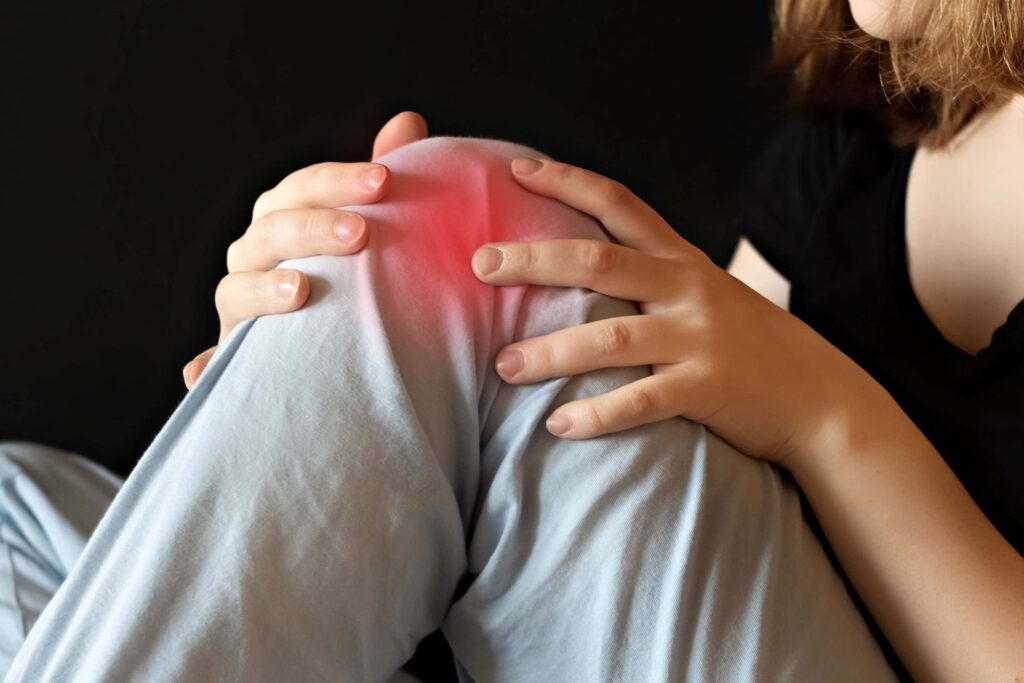
Inflammation or the inflammatory response, is a part of your immune response. That is a natural response your body has to injury, infection, or irritation. Damaged cells in the affected area releases chemical signals that causes the blood vessels to leak fluid into the affected area which results in swelling, redness, and pain. This is to help isolate the irritants from further contact with the rest of the body. White blood cells will then move in to clean up irritants and damaged cells. Healing begins shortly after.
Acute inflammation is a rapid and short-lived response that occurs in response to injury or infection. Acute inflammation typically lasts only a few days. It is characterized by redness, swelling, heat, and pain at the site of inflammation. Acute inflammation is an important response, which forces you to stop moving to prevent further injury, while allowing the immune system to deal with the irritants and initiate the healing process.
Chronic inflammation, on the other hand, is a prolonged response that can last for weeks, months, or even years, after the initial injury or infection. Unlike acute inflammation, chronic inflammation is not beneficial. Inflammation persists despite not being necessary and can result in breaking down of healthy tissue in a misdirected attempt at repair and healing.
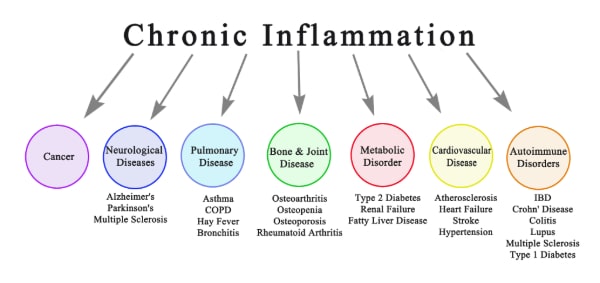
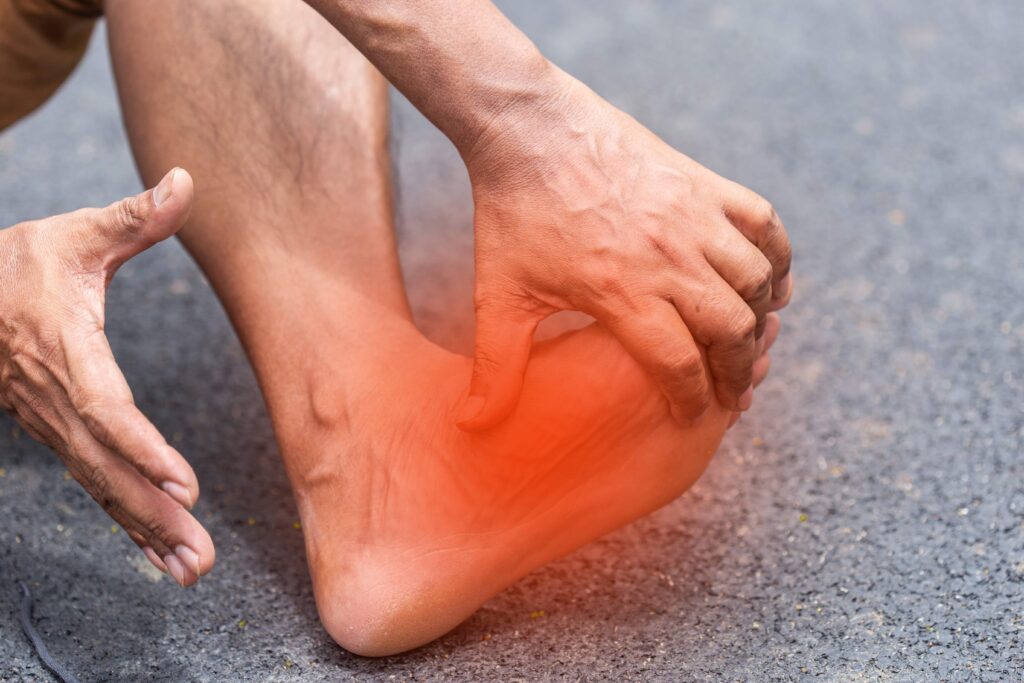
The five common characteristic of inflammation is redness, swelling, heat, pain, and stiffness or loss of function. These symptoms are generally observed with any acute inflammation, and can be managed with non-steroidal anti-inflammatory medication or physical therapy.
With chronic inflammation, these symptoms become more complex. Pain is felt in a widespread area of the body, muscles, and joints. Often, chronic fatigue, insomnia, depression and anxiety becomes an issue.

Acute inflammation in your joints can occur due to repeated trauma or stress due to everyday use, athletic training or performance. This is characterised by pain, heat, swelling, and stiffness. The short-term acute inflammatory response usually involves only the soft tissue structures of the joint such as the synovial membrane and the joint capsule. It follows the general process of inflammation to remove damage and promote healing and is both necessary and beneficial.
However, if left untreated, or allowed to recur again and again, acute inflammation can become chronic inflammation. The same process results in degradation and damage of the cartilage and the overall joint, which may become progressive and irreversible.
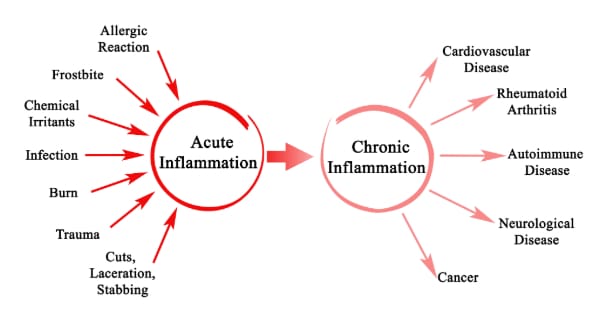
Acute inflammation is most commonly triggered by injuries (such as soft tissue strains, cuts, bruises, or burns) and infections (caused by bacteria, viruses, fungi, or other pathogens). When tissues are damaged or infected, the body’s immune system responds rapidly to contain and eliminate the threat, leading to the characteristic symptoms of acute inflammation, including redness, swelling, heat, and pain at the affected site.
Chronic inflammation is a little more complicated. It may be caused by a variety of factors, and sometimes it can be unclear what caused chronic inflammation. In general, unhealthy diet lacking in food with anti-inflammatory properties, stress and inactivity resulting in poor immune function and metabolic process, and repeated or persistent infection, may all result in chronic inflammation.
Chronic inflammation has been implicated in a wide range of health conditions, including cancer, mental health disorders, inflammatory bowel disease (IBD), rheumatoid arthritis (RA), and more.
Chronic inflammation can create an environment that promotes the growth and spread of cancer cells. Additionally, inflammation can damage DNA and promote genetic mutations, stimulate cell proliferation, and metastasis (spread of cancer to other parts of the body).
There is growing evidence suggesting a link between chronic inflammation and mental health conditions such as depression, anxiety, and schizophrenia. Inflammation may contribute to alterations in neurotransmitter function, neuroplasticity, and the stress response system, which can impact mood, cognition, and behaviour.
Conditions like Crohn’s disease and ulcerative colitis are characterized by chronic inflammation of the gastrointestinal tract. Inflammation in IBD can lead to symptoms such as abdominal pain, diarrhoea, rectal bleeding, and weight loss. The exact cause of IBD is not fully understood, but immune dysregulation and environmental factors are thought to play a role.
Rheumatoid arthritis (RA) is a classic example of an autoimmune disorder characterized by chronic inflammation of the joints. In RA, the immune system mistakenly attacks the synovium (lining of the joints), leading to inflammation, pain, swelling, and eventually joint damage. Chronic inflammation in RA can also affect other organs and systems in the body.
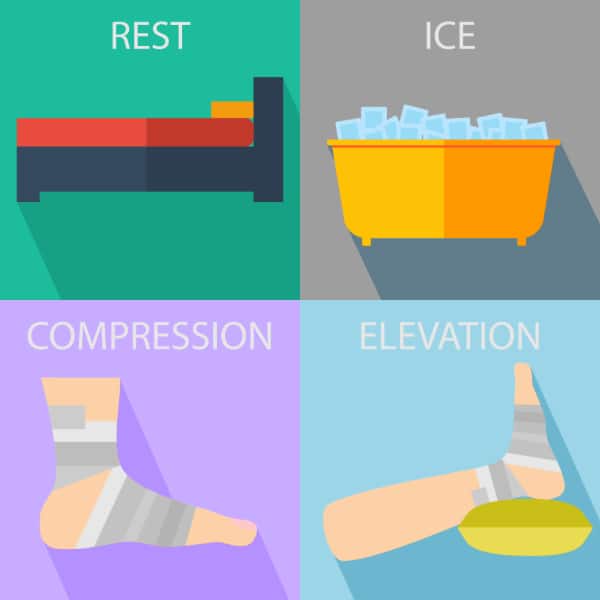
For acute inflammation, which typically arises in response to injuries or infections, the RICE method (rest, ice, compression, and elevation) is commonly used to reduce inflammation and promote healing. Resting the affected area helps prevent further damage, while applying ice helps constrict blood vessels and reduce swelling. Compression with a bandage can further minimize swelling, and elevation of the affected limb can help reduce swelling by promoting fluid drainage.
For chronic inflammation, which may be caused by conditions such as autoimmune disorders or long-term exposure to environmental toxins, treatment often involves medications to manage symptoms and suppress the inflammatory response. Nonsteroidal anti-inflammatory drugs (NSAIDs) such as ibuprofen or naproxen can help reduce pain and inflammation by inhibiting the production of prostaglandins, which are mediators of inflammation. Corticosteroids may also be prescribed to suppress inflammation and modulate immune responses in conditions like rheumatoid arthritis or inflammatory bowel disease.
Managing acute inflammation at home involves simple self-care measures that can help alleviate symptoms and promote healing. Here’s a step-by-step guide:
Rest: Give the affected area time to recover by avoiding activities that may aggravate the inflammation. Resting allows the body to focus its energy on healing.
Ice: Apply ice or a cold pack to the affected area for 15-20 minutes at a time, several times a day. Cold therapy helps constrict blood vessels, reduce swelling, and numb pain. Be sure to wrap the ice pack in a cloth to protect your skin from frostbite.
Compression: Use compression, such as an elastic bandage, to help reduce swelling and provide support to the injured area. Make sure the bandage is snug but not too tight, as excessive compression can impair circulation.
Elevation: Elevate the affected area above the level of your heart whenever possible, especially if it’s a limb. This helps reduce swelling by promoting drainage of excess fluid from the area.
Lifestyle modifications such as maintaining a healthy diet, regular exercise, stress management, and avoiding tobacco and excessive alcohol consumption can help reduce chronic inflammation and improve overall health outcomes. In some cases, targeted therapies that specifically inhibit inflammatory pathways or biologic agents that target immune cells or cytokines may be used to manage chronic inflammatory conditions more effectively.
Healthy diet: Consuming a balanced diet rich in fruits, vegetables, whole grains, lean proteins, and healthy fats can help reduce inflammation and support the body’s natural healing processes. Certain foods, such as those high in omega-3 fatty acids (found in fatty fish, flaxseeds, and walnuts) and antioxidants (found in colorful fruits and vegetables), have anti-inflammatory properties.
Regular exercise: Engaging in regular physical activity can help reduce inflammation, improve circulation, and boost immune function. Aim for a combination of cardiovascular exercise, strength training, and flexibility exercises to promote overall health and reduce inflammation.
Stress management: Chronic stress can contribute to inflammation and worsen inflammatory conditions. Practicing stress-reduction techniques such as deep breathing, meditation, yoga, tai chi, or progressive muscle relaxation can help lower stress levels and reduce inflammation.
Adequate sleep: Getting enough restorative sleep is essential for maintaining a healthy immune system and reducing inflammation. Aim for 7-9 hours of quality sleep per night and establish a relaxing bedtime routine to promote better sleep hygiene.
Hydration: Staying hydrated is important for supporting the body’s natural detoxification processes and reducing inflammation. Aim to drink plenty of water throughout the day, and limit consumption of sugary beverages and alcohol, which can promote inflammation.
Avoiding tobacco and excessive alcohol: Smoking and excessive alcohol consumption can increase inflammation in the body and contribute to a variety of health problems. Quitting smoking and moderating alcohol intake can help reduce inflammation and improve overall health.
Inflammation is a natural and necessary process that helps the body heal and protect itself. However, chronic inflammation can have serious health consequences. By understanding the causes and effects of inflammation and taking steps to reduce your risk, you can protect your health and well-being. If you would like to learn how Five Dock Osteo Chiro can help you with inflammation, check out our treatment approach.
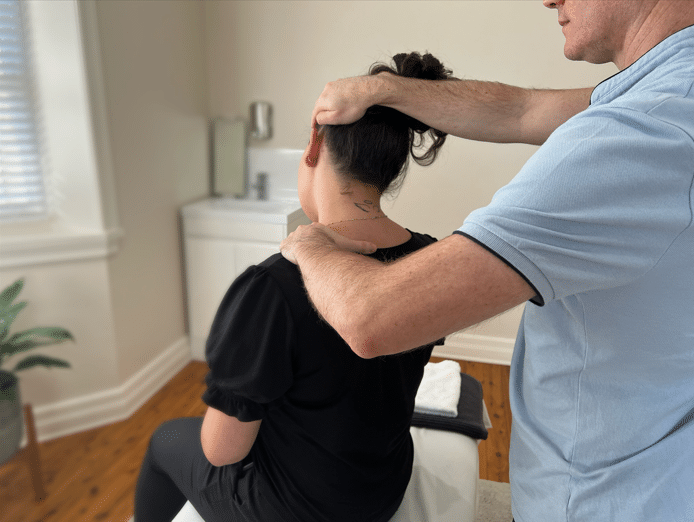
Forest Lodge, Annandale, Glebe, Leichhardt, Balmain, Haberfield, Canada Bay, Rozelle, Rodd Point, Wareemba, Stanmore, Petersham, Lilyfield, Hunters Hill, Enfield, Cabarita, Mortlake, Rhodes, Burwood Heights, Birchgrove, Gladesville, Huntleys Point, Abbotsford, Ashfield, Croydon Park, Croydon, Chiswick, Russell Lea, Burwood, Strathfield, Concord, Drummoyne, North Strathfield, Liberty Grove, Dulwich Hill, Lewisham, Camperdown, Ashbury, Homebush, Homebush West, Woolwich, Henley, Summer Hill, Sydney Olympic Park

About
Five Dock Osteopathic & Chiropractic is located in Canada Bay, in Sydney’s Inner West. Servicing suburbs including Burwood, Croydon, Drummoyne, Five Dock, Haberfield, Concord, Abbotsford, Chiswick, Leichhardt, Wareemba, Russell Lea, Summer Hill, Strathfield.
Clinic hours
Monday, Tuesday, Thursday 7AM – 7PM
Wednesday, Friday 7AM – 5PM
Saturday 7AM – 2PM
Sunday Closed
Contact details
212 Great North Road, Five Dock, NSW 2046
Phone: 02 9712 1736
Fax : 02 9712 1736
Email : [email protected]